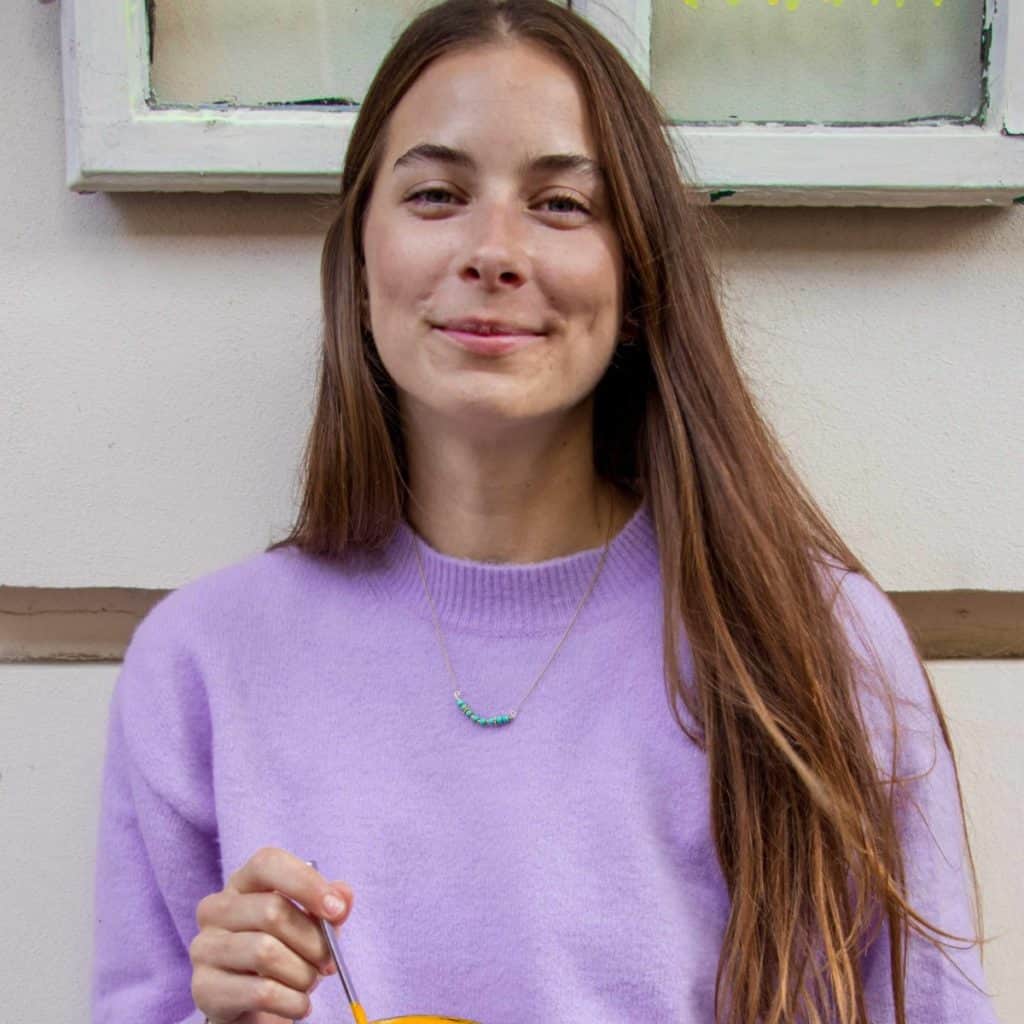
Q&A: Vegan myths busted
Is eating fewer animal products one of your New Year’s Resolutions? It’s a great idea in theory, but saying no to steak, sausage and double pepperoni pizza might be harder in reality. That’s why many of us try “Veganuary“, one month of pure vegan nourishment.
Many famous faces such as comedian Kaya Yanar, YouTuber Rezo and actors Ralf Moeller and Joaquin Phoenix are trying it this year. But how can you make the transition to plant-based products as simple as possible?
Information is key
Before you start cleaning out your kitchen cupboards, you should be well informed. So we asked Kirsten Kaminsik aka “@thetastyk” to debunk common vegan myths and demonstrate how a vegan diet doesn’t mean you have to do without.

Kirsten became a vegan overnight in 2015. She’s the founder of The Tasty K, one of Germany’s most popular plant-based nutrition blogs and author of Vegan Holiday Cooking.
Kirsten is the face of the vegan food revolution, inspiring her 375,000 Instagram followers with healthy, animal-free inspiration every day.
Q&A
For this week’s Q&A, Kirsten shares some vegan wisdom including the best way to get set up to stick with veganism long term.Then it’s your turn – if you have any questions for our expert, just post them on our Instagram channel.
In her live talk, Kirsten will be available to answer your questions on our channel on Friday, 22.01.2021 from 16.30.
Myth 1 – You can become a vegan overnight.
There are people who become vegan overnight (usually motivated by ethical reasons) and there are those who change their diet step by step, making smaller changes such as switching to oat milk or nut butter.
There is no right or wrong way to do this, and each person must find out for themselves what suits them best. The most important thing is that you feel comfortable.
In my experience, it’s easier to make long-term changes when you have external motivation – like ethical reasons, environmental or health – especially if you get informed before you make the change.
What constitutes a vegan diet in the first place? What nutrients should you eat? Which foods contain them? I suggest making a list of food with nutritious ingredients that you love, so you can start by veganising your favorite dishes. This’ll double up as a journey of culinary discovery!
To be on the safe side, I suggest visiting your doctor to test your blood to ensure you aren’t missing any key nutrients, and for a full understanding of what your body needs.
Myth 2 – As a vegan you can hardly eat anything.
The best thing about vegan cooking is the never-ending discovery of new ingredients and flavour combinations. From vegetables and fruits, nuts and seeds, legumes, grains and spices, our plant world is so diverse it’s impossible to get bored.
What’s more, the basic ingredients of a vegan diet are actually very affordable: seasonal vegetables and fruits, as well as grains and legumes, are far from expensive items. However, if you don’t have time to cook and would prefer to buy vegan convenience and substitute products, it can get more expensive. For me personally, a healthy balance of lots of inexpensive whole-food ingredients with few vegan substitutes works best. It’s healthier for me and better for my wallet.
Myth 3 – Going vegan is hard to stick with.
Eating, like many things, is a matter of habit. When you change your diet for a prolonged period of time, it becomes the norm. I’ve been living vegan for over five years now and this lifestyle has become my idea of normal. The benefits of a vegan diet for our environment, our own health, and animal welfare is clear. Living vegan is most definitely worth it.
For me, health was the main reason to give up animal foods. Vegan nutrition contributes demonstrably to lower blood pressure and better blood fat values. Now my lifestyle has changed permanently because I couldn’t return to a life eating animal products with a clear conscience.
When it comes to veganism, your health and personal well-being should come first. It’s especially important to pay attention to the changing nutritional value of your diet, and ensure that vitamin B12 is supplemented as a rule, since that is almost exclusively found in animal-based food products.
Your doctor will be able to tell you of any other potential deficiencies to look out for – but when you turn vegan, you’ll naturally increase your nutritional intake with all those delicious plant-based foods.
To conclude
Veganism doesn’t have to be extreme. Breaking old habits might feel challenging at first, but you don’t have to change everything at once, and you can even dip in and out of it. Just thinking about these changes is a good thing – for animals, for the environment, for the climate and for your health.



Comments